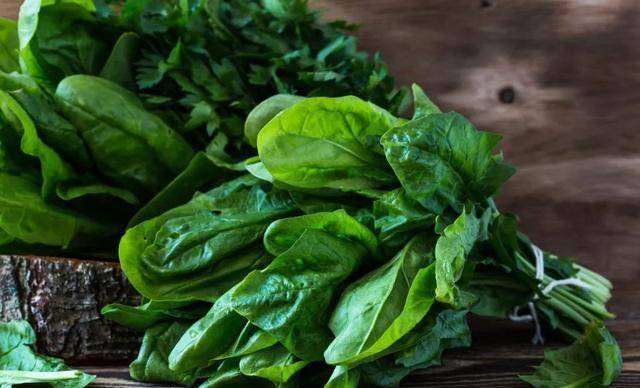With the accelerating pace of modern life, the incidence of gout is on the rise. In the treatment of gout, dietary adjustments play an extremely important role.
Gout patients need to strictly control their intake of purines because excessive purine consumption can lead to elevated uric acid levels and may trigger gout attacks. However, many people may not be aware that some vegetables actually have purine levels that are not lower than meat. Therefore, for gout patients, they should try to avoid consuming the following five types of vegetables.
1
5 Vegetables that are “Purine-Rich”
The five high-purine vegetables that gout patients should avoid or limit intake of are:
Spinach
Although spinach is commonly recommended in a healthy diet, it has a high purine content. While the purine content in spinach is lower than that in meat, excessive consumption can still lead to elevated uric acid levels in gout patients.
Mushrooms
Various types of mushrooms, including shiitake mushrooms and enoki mushrooms, have relatively high purine content. During the cooking process, mushrooms absorb broth, which may further increase their purine content.
Nori Seaweed
Nori seaweed is a common seaweed and an important part of many Asian dishes. Nori seaweed has a high purine content, so gout patients should limit its consumption.
Asparagus
Asparagus is a low-calorie, highly nutritious vegetable, but it has a relatively high purine content. Gout patients should consume asparagus in moderation.
Cauliflower
Cauliflower is a healthy vegetable rich in vitamins and minerals, but it also has a relatively high purine content. Gout patients should pay attention to portion control when consuming cauliflower.
It’s important for gout patients to consider their individual health conditions and nutritional needs when making dietary choices and to develop a personalized diet plan under the guidance of a physician or nutritionist.
2
Can Gout Patients Eat Legumes?
Which Legumes Are Suitable for Consumption
Gout patients can consume legumes in moderation, but they need to pay attention to the purine content and portion size of legumes. The purine content in legume foods is usually moderate, and some studies suggest that moderate consumption of legumes does not significantly increase the risk of gout attacks. However, excessive consumption of high-purine foods may lead to elevated uric acid levels, so gout patients should be cautious when consuming legumes.
Here are some legumes that are suitable for gout patients to consume:
Tofu
Tofu is a legume food with relatively low purine content, rich in protein and calcium, making it suitable for gout patients.
Soy Milk
Soy milk is another good choice because its purine content is usually lower than that of tofu and other legume foods.
Mung Beans
Mung beans have relatively low purine content and can be consumed in moderation.
Peas
Peas also have low purine content and can be consumed by gout patients.
Lentils
Lentils have moderate purine content and can be consumed in moderation.
3
Foods and Beverages Gout Patients Should Avoid in Their Diet
High-Purine Foods
Gout patients should avoid or limit the intake of high-purine foods because purines metabolize into uric acid in the body. High-purine foods include:
Animal Offal (such as liver, kidneys, heart, brain)
Red Meat (such as beef, lamb, pork)
Seafood (such as shrimp, crab, shellfish, fish)
High-Purine Vegetables (such as spinach, mushrooms, asparagus, etc., but moderate consumption is generally advised)
Alcoholic Beverages
Alcohol interferes with uric acid excretion and increases the risk of gout attacks. Gout patients should avoid or limit the intake of the following alcoholic beverages:
Beer and spirits
Wine and white spirits
Alcoholic beverages and seasonings
Sugary beverages and high-fructose foods
High-fructose corn syrup and other foods and beverages containing high fructose increase uric acid production, and gout patients should avoid or limit the intake of these foods.
Refined Carbohydrates
Refined carbohydrates such as white bread, desserts, and cakes lack nutrients and can lead to weight gain, increasing the risk of gout.
High-Fat Foods
High-fat foods may increase the risk of cardiovascular diseases, so gout patients should avoid excessive consumption of fried foods, cheese, and other high-fat foods.
Fast food and processed foods
Fast food and processed foods are usually high in purines, sugar, and fat, which are detrimental to the health of gout patients.


